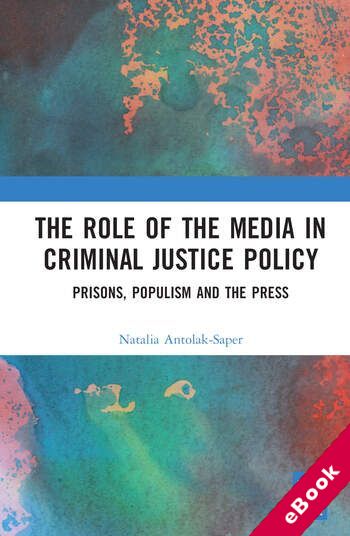
The device(s) you use to access the eBook content must be authorized with an Adobe ID before you download the product otherwise it will fail to register correctly.
For further information see https://www.wildy.com/ebook-formats
Once the order is confirmed an automated e-mail will be sent to you to allow you to download the eBook.
All eBooks are supplied firm sale and cannot be returned. If you believe there is a fault with your eBook then contact us on ebooks@wildy.com and we will help in resolving the issue. This does not affect your statutory rights.
This book provides a socio-legal examination of the media’s influence on the development and implementation of criminal justice policy.
This impact is often assumed. And, especially in the wake of high-profile crimes, the press is routinely observed calling for sentences to be harsher, and for governments to be tougher on crime. But how do we know that there is a connection? To answer this question, the book draws on a case-study of the media reporting of the rape and murder of Jill Meagher in Melbourne, Australia; as well as other well-known cases, including those of James Bulger, Sarah Payne, Stephen Lawrence and Michael Brown, among others. Deploying a socio-legal framework to examine how the media’s often powerful and emotive narratives play a crucial role in the development and implementation of law, the book provides a deep and critical reflection on its influence. The book concludes with a number of suggestions for media reform: both to moderate the media’s influence, and to incorporate a broader range of viewpoints.
This multi-disciplinary book will appeal to scholars and students in socio-legal studies, criminology and criminal law as well as those working in relevant areas in sociology and media studies.